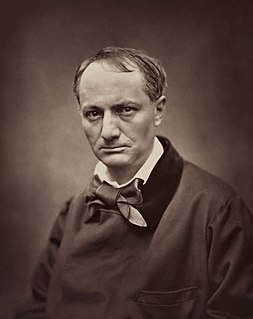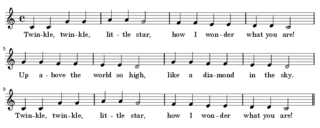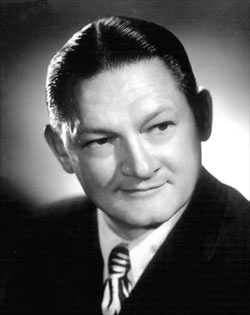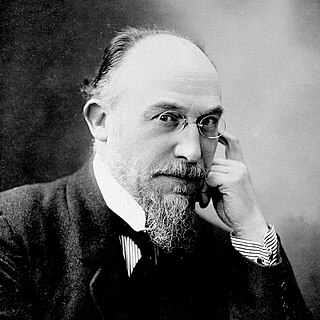See also
| This disambiguation page lists articles associated with the title I Loved You. If an internal link led you here, you may wish to change the link to point directly to the intended article. |
" I Loved You " is a 2014 song by Blonde.
I Loved You may also refer to:
| This disambiguation page lists articles associated with the title I Loved You. If an internal link led you here, you may wish to change the link to point directly to the intended article. |

Charles Pierre Baudelaire was a French poet who also produced notable work as an essayist, art critic, and one of the first translators of Edgar Allan Poe. His poems exhibit mastery in the handling of rhyme and rhythm, contain an exoticism inherited from Romantics, but are based on observations of real life.

In Greek mythology, Narcissus was a hunter from Thespiae in Boeotia who was known for his beauty. According to Tzetzes, he was a Laconian hunter who loved everything beautiful. Narcissus was excessively proud of his own handsomeness, rejecting others' advances because he thought only someone as beautiful as himself should pursue him, causing some to take their own lives to prove their devotion to his striking beauty. In most versions of his legend, he did finally meet someone he thought was good enough for him – himself, by way of his reflection in a pool of water. Usually, he is said to have wasted away longing to be with his mirror self, but in other stories he kills himself upon realizing he cannot have his own reflection as a lover. Either way, he dies, and in his place sprouts a flower bearing his name.

"Twinkle, Twinkle, Little Star" is a popular English lullaby. The lyrics are from an early-19th-century English poem by Jane Taylor, "The Star". The poem, which is in couplet form, was first published in 1806 in Rhymes for the Nursery, a collection of poems by Taylor and her sister Ann. It is sung to the tune of the French melody "Ah! vous dirai-je, maman", which was published in 1761 and later arranged by several composers, including Mozart with Twelve Variations on "Ah vous dirai-je, Maman". The English lyrics have five stanzas, although only the first is widely known. It has a Roud Folk Song Index number of 7666. This song is usually performed in the key of C major.

The Lorelei, also spelled Loreley in German, is a 132 m (433 ft) high, steep slate rock on the right bank of the River Rhine in the Rhine Gorge at Sankt Goarshausen in Germany. The Loreley Amphitheatre on top of the rock is a UNESCO World Heritage Site.

Sara Teasdale was an American lyric poet. She was born Sarah Trevor Teasdale in St. Louis, Missouri, and used the name Sara Teasdale Filsinger after her marriage in 1914.
Ned Rorem is an American composer and diarist. He won a Pulitzer Prize for Music in 1976 for his Air Music: Ten Etudes for Orchestra.

Albert Victor Young was an American composer, arranger, violinist and conductor.

Eric Edward Whitacre is an American composer, conductor, and speaker known for his choral, orchestral, and wind ensemble music. In March 2016, he was appointed as Los Angeles Master Chorale's first artist-in-residence at the Walt Disney Concert Hall.

The influence of Edgar Allan Poe on the art of music has been considerable and long-standing, with the works, life and image of the horror fiction writer and poet inspiring composers and musicians from diverse genres for more than a century.
"Do Not Stand at My Grave and Weep" is a poem attributed to be written in 1932 by Mary Elizabeth Frye. Although the origin of the poem was disputed until later in her life, Mary Frye's authorship was purportedly confirmed in 1998 after research by Abigail Van Buren, a newspaper columnist.
"Down by the Salley Gardens" is a poem by William Butler Yeats published in The Wanderings of Oisin and Other Poems in 1889.
I Love You, I Love U, or I Luv U may refer to:
Night is the period in which the sun is below the horizon.
Was it some Golden Star? is a poem written by Gilbert Parker, published in Volume I of a series of poems called Embers. It was set to music by the English composer Edward Elgar in 1910, as his Op. 59, No. 5.
"The Self Banished" is a poem written by Edmund Waller in about 1645. It was set to music by the baroque composer John Blow in 1700.

"I Loved You" is a poem by Alexander Pushkin written in 1829 and published in 1830. It has been described as "the quintessential statement of the theme of lost love" in Russian poetry, and an example of Pushkin's respectful attitude towards women.

On Wenlock Edge is a song cycle composed in 1909 by Ralph Vaughan Williams for tenor, piano and string quartet. The cycle comprises settings of six poems from A. E. Housman's 1896 collection A Shropshire Lad. A typical performance lasts around 22 minutes. It was premiered by Gervase Elwes, Frederick Kiddle and the Schwiller Quartet on 15 November 1909 in the Aeolian Hall, London. It was later orchestrated by the composer in a version first performed on 24 January 1924. Subsequent editions show a measure excised from the final movement (Clun): the third measure from the end. The Boosey and Hawkes 1946 score notes indicates this in a footnote on the last page. The cycle was recorded by Elwes, Kiddle and the London String Quartet in 1917.

The Trois poèmes d'amour is a 1914 song cycle for voice and piano by Erik Satie. It is the only set of mélodies Satie composed to his own texts. In performance it lasts 2–3 minutes.